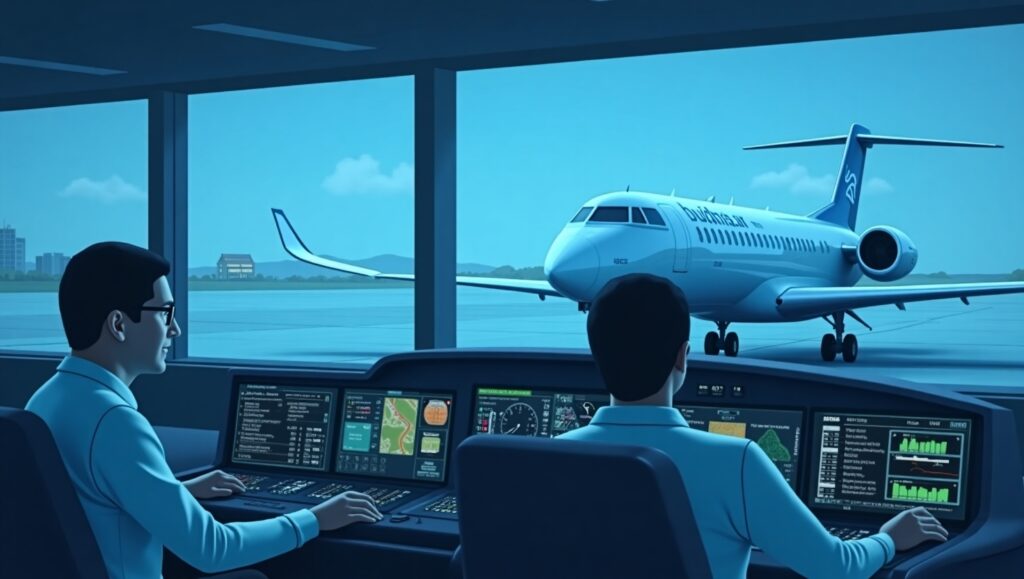In today’s fast-evolving aviation industry, technology is not just an option—it’s a necessity. From enhancing flight safety to improving the passenger experience, modern airlines depend on technological innovation to meet global standards. At Buddha Air, one of Nepal’s most trusted airlines, technology plays a central role in ensuring safety, operational efficiency, and customer satisfaction.
Putting Safety First with Advanced Technology
Aviation is one of the safest modes of transportation, largely due to continuous improvements in safety technologies. Airlines that invest in modern systems can significantly reduce risks and ensure smooth, secure flights for passengers. At Buddha Air, safety is the foundation of every decision. The airline leverages state-of-the-art tools and systems to uphold the highest standards in aviation safety and reliability.
Aircraft Maintenance: The Backbone of Safe Operations
At Buddha Air, maintaining aircraft in top condition is a non-negotiable priority. The airline’s dedicated maintenance hangar houses a fully equipped repair shop with genuine spare parts and advanced tools. This allows highly trained technicians to perform timely maintenance without delays, ensuring each aircraft is flight-ready at all times.
One of the key technologies used in aircraft inspections is Non-Destructive Testing (NDT). This advanced method helps identify even the smallest defects in engine parts or airframe components—without dismantling them. Early detection means potential issues are addressed before they become safety concerns, boosting overall fleet reliability.
Daily pre-flight inspections are also a crucial safety measure. Every morning, certified engineers conduct comprehensive checks—covering engines, avionics, hydraulic systems, and the aircraft cabin—to confirm everything is functioning perfectly before takeoff.
Enhancing Flight Operations Through Data Monitoring
Flight safety and operational efficiency are further strengthened through Flight Data Monitoring (FDM). This system continuously records flight parameters such as aircraft performance, weather conditions, pilot behavior, and route data. Buddha Air’s safety team analyzes this information to identify trends, implement improvements, and maintain a proactive approach to flight safety.
Fuel efficiency is another area where technology delivers big results. Buddha Air uses advanced fuel management software to analyze data such as flight paths, aircraft weight, and wind patterns. This allows the airline to reduce fuel consumption, lower operational costs, and minimize its environmental footprint.
Flight Simulator Training: Building Pilot Confidence and Skill
Technology plays a vital role in training Buddha Air’s pilots to the highest professional standards. The airline has invested in high-fidelity flight simulators that mimic real-world flying conditions, including routine flights and emergency scenarios. These simulators allow pilots to practice and refine their skills in a safe, controlled environment.
A core part of pilot development is the Flight Panel Training (FPT) program. This mandatory training ensures all pilots—regardless of experience level—stay updated with current procedures and aviation technologies. The program covers all critical aspects of cockpit operations, from navigation and communication systems to emergency protocols, preparing pilots for every situation they may encounter in the sky.
Driving Sustainability Through Smart Aviation Technology
Environmental responsibility is an increasingly important focus for the global aviation sector, and Buddha Air is leading by example in Nepal. The airline has adopted several sustainability initiatives powered by technology.
Fleet modernization is a key step. Buddha Air operates fuel-efficient ATR aircraft designed to use less fuel while maintaining high performance. Combined with flight optimization software that factors in altitude, weather, and aircraft weight, the airline is able to reduce fuel burn, lower emissions, and improve its overall environmental performance.
Improving Passenger Experience with Digital Innovation
Delivering a seamless travel experience is just as important as ensuring safe flights. Buddha Air uses digital tools to enhance the passenger journey at every stage—from booking to boarding.
The airline’s user-friendly website and mobile app allow passengers to book flights, check in online, download boarding passes, and receive real-time flight updates. These features save time and reduce airport stress, especially for frequent flyers and business travelers.
Additionally, Buddha Air’s Customer Relationship Management (CRM) system uses data insights to personalize services. For example, loyal passengers might receive exclusive offers or targeted communication based on their travel history, boosting satisfaction and loyalty.
Conclusion: Technology at the Core of Buddha Air’s Mission
Technology is the engine driving Buddha Air’s success—from aircraft safety and fuel efficiency to pilot training and customer service. By continuously investing in cutting-edge aviation technologies, Buddha Air remains one of Nepal’s safest and most reliable airlines.
Whether it’s through real-time flight monitoring, simulator-based pilot training, or sustainability-focused operations, the airline ensures each flight is safe, efficient, and enjoyable. As Buddha Air looks to the future, its tech-forward approach will continue to set the benchmark for excellence in Nepal’s aviation industry.

